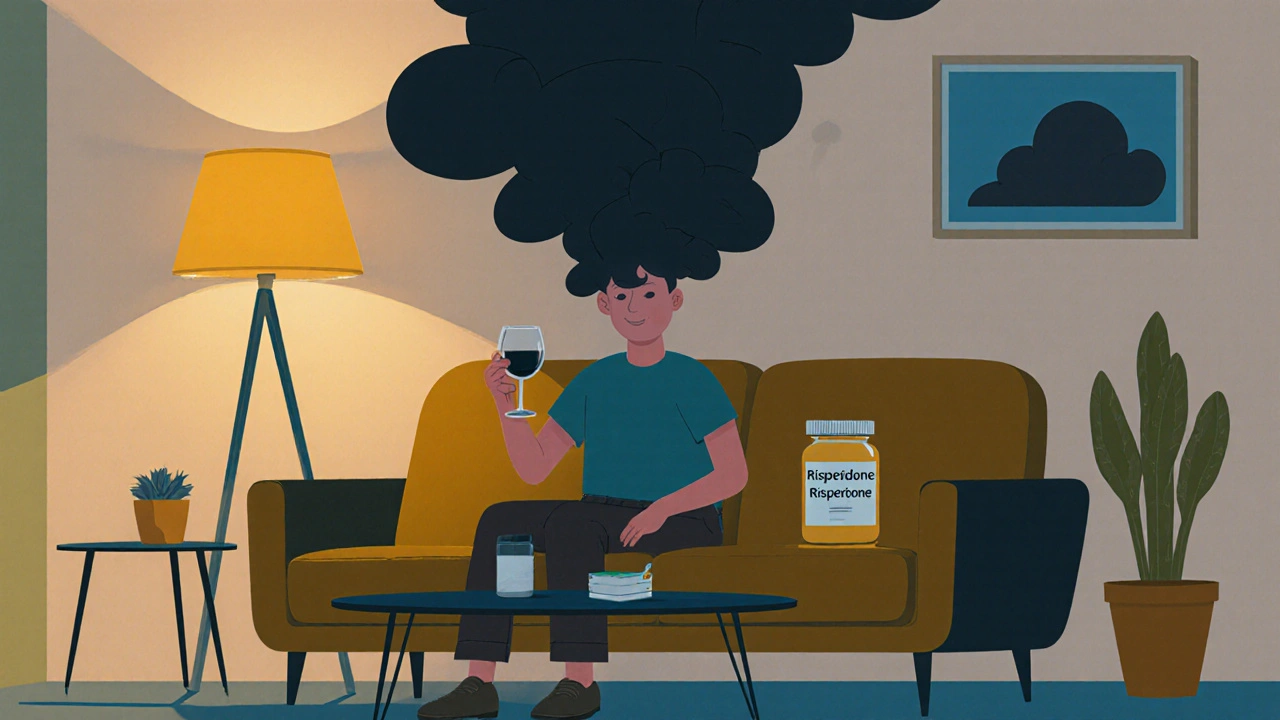Risperidone Side Effects: What You Need to Know Before Taking It
When you take risperidone, an atypical antipsychotic used to treat schizophrenia, bipolar disorder, and irritability in autism. Also known as Risperdal, it works by balancing brain chemicals—but that balance doesn’t come without trade-offs. Many people start risperidone hoping for relief from hallucinations, aggression, or mood swings, but they’re often caught off guard by the side effects. It’s not just about feeling sleepy. Some people gain weight fast. Others can’t sit still. A few even develop tremors or muscle stiffness that feel like something’s wrong with their body—not their mind.
The most common side effects are sedation, drowsiness or fatigue caused by how risperidone affects dopamine and histamine receptors, and weight gain, a metabolic shift that can happen even at low doses, linked to increased appetite and insulin resistance. These aren’t rare. In clinical studies, over 40% of adults on risperidone reported feeling unusually tired within the first week. Weight gain? Nearly half gained 7% or more of their body weight in six months. Then there’s extrapyramidal symptoms, involuntary muscle movements like tremors, restlessness, or rigid posture that mimic Parkinson’s. These aren’t just uncomfortable—they can make people stop taking the drug, even if it’s helping their mental health.
It’s not all bad news. Many side effects fade after a few weeks. Drowsiness often improves as your body adjusts. Weight gain can be managed with diet and exercise—some doctors even add metformin to help. But if you’re shaking, pacing, or can’t sit still, don’t ignore it. That’s not normal fatigue. That’s your nervous system reacting. And if you’re older or have heart issues, risperidone can raise your risk of stroke or irregular heartbeat. That’s why monitoring matters. You need to track your weight, energy levels, and movement—not just your mood.
Below, you’ll find real comparisons and experiences from people who’ve taken risperidone and other antipsychotics. You’ll see what worked, what didn’t, and what symptoms people actually struggled with—no fluff, no marketing. Just what you need to know before you start, or while you’re already on it.

Risperidone and Alcohol: What Happens When You Mix Them
Mixing risperidone and alcohol can cause dangerous side effects like extreme drowsiness, low blood pressure, and impaired coordination. Learn why even one drink can be risky and what safer alternatives exist.
Read More